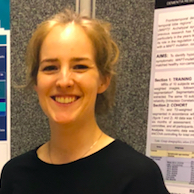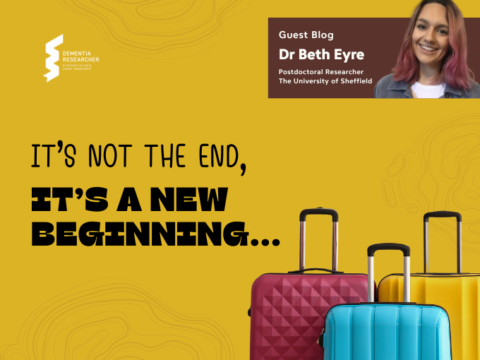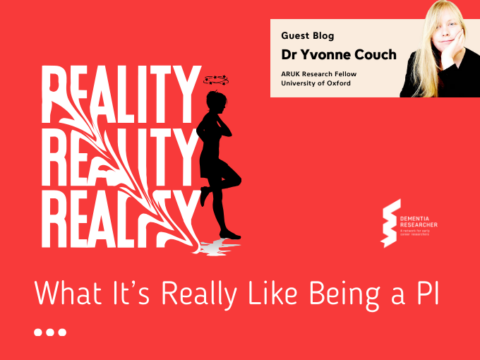It’s been almost a year since I finished my MSc and I’ve managed to land a job that fits my interests and ambitions within a month of finishing. This can be partly attributed to luck, but mostly because I knew exactly what I wanted and how to get it. That is not to say that it was always easy. There is a multitude of things I wish I’d known and done when first starting my MSc. There are also things I did do, and am incredibly glad I did.
I appreciate that not everyone’s experience is the same as mine and there are undoubtedly things I did not even think of while writing this piece. However, I’m sharing with you here the things that did work for me and what I wish I’d done so you can hit the ground running when you start your master’s.
Choose your project wisely

First and foremost, I would say that your project is more important than any of your modules. Yes, background knowledge is valuable, but it is the experience that cannot be taught from just books or attending seminars that will really set you apart. This is not to discount the importance of lectures, but to underline the real-life consequences of lacking experience. You have already proven you’re smart, you wouldn’t have made it this far otherwise. Now you have to show you can perform as well. Chances are, you will never use the knowledge garnered from that one Friday afternoon lecture mid-October. On the other hand, a proficiency in using a specific software programme or experience in communicating with patients and their loved ones is a skill employers will value above anything else.
Who hasn’t heard about the following vicious cycle: “You need experience to get a job, but a job to get experience”? One way to get experience is an unpaid internship. But who has the time or money for that? Hence, you should make your project work for you. Before choosing your project, you need to consider what you want to get out of it. What you need to get out of it. This requires you to at least have an idea of what field you want to work in, what methods tickle your fancy, and what your weaknesses or gaps in your knowledge are so you can work on these. Personally, I wanted to combine cognition with structural imaging. I had applied for research assistant jobs the previous summer but without success. I received a few interview invitations but was never the first choice. When I asked for feedback, the answer was almost always that I lacked the experience other candidates had when it came to working with specific patient cohorts and psychological testing. Hence, the main requirement I set for my project was that it had to include cognitive testing in a patient cohort. An added opportunity to analyse imaging data would be a bonus but was not my core requirement. I got lucky and was able to combine both of these in one project. However, it is not always possible to choose your project in this much detail and some supervisors allow little freedom in making changes to projects they provide. Although a project might not be all you ever hoped it to be, it is the transferable skills developed during that will be invaluable to you throughout your whole research career, no matter what field you end up working in.
Failing to plan, is planning to fail
Finding a brilliant supervisor and fantastic project will not guarantee your success. In an ideal world, you’ll sail through your project without encountering any storms. Unfortunately, research is rarely ever smooth sailing. Especially if you’re working with human subjects. Participants will cancel, you won’t be able to book enough slots, or one of your experiments fails. Even though you might not be able to change the situation, you can choose how you deal with it. Hence, you should always be prepared for things to go wrong.
Allowing for mishaps in your planning during all stages of your project will allow you time to adjust your experiment, recruit that one extra participant, or rerun your analysis. Data collection takes a considerable amount of time and numerous things need to be in place before you can even start. Consider the things you will need access to from the get-go. Do you need an honorary contract? In that case, be prepared to chase those responsible for it on a regular basis. While an honorary contract, a permit, or ethical approval will be on the top of your priority list, it definitely will not be on that of the admin team. You are just another chore to be ticked off. This may sound harsh, but you are really the sole person responsible for your progress. Things will not always go according to plan and bureaucracy will hinder your progress.
Things going wrong can be disheartening but it is all part of the game. I made ample mistakes during my MSc and while frustrating at the time, it has given me a unique insight into what it entails to do research. Moreover, coming out of it on the other end, stronger than before, is incredibly empowering.
Use all resources available to you

Being a student definitely opens doors. However, it takes a bit of effort to know which ones have been left unlocked. Find out if there are any free courses running or if your supervisor is willing to send you on a paid course. Up until my MSc, I’d always gotten by using SPSS and had not been motivated enough to learn h
ow to use R or MATLAB. A decision I regret greatly, as I use them for all of my analyses now. It’s been a steep learning curve to say the least. Please, do your future self a favour and try to get some experience if you have even the slightest suspicion of needing this knowledge later on.
One thing I greatly enjoyed doing was volunteering for other people’s research. Although volunteering might not contribute to your own personal development directly, I think it is important to experience research as a participant as opposed to a researcher at least once. Another thing I’d suggest is becoming immersed in your lab if possible. Attend events, lab meetings and journal clubs, and even present during them if you dare. This is a great way to see if academia (or this particular lab) is an environment you could see yourself working in.
As I mentioned before, being smart isn’t enough anymore. Networking is becoming increasingly important in academia. Be sure to know when seminars or lunchtime lectures are happening, subscribe to mailing lists, or follow researchers and departments on Twitter. Events, opportunities, and new publications are often shared this way.
Additionally, universities often have their own student networks. For instance, Alzheimer Research UK has network committees within the majority of UK universities and organises networking days where you can present your research. I presented my project at one at UCL. These events are often free to attend and are a great “low-stakes” way of presenting your research. Plus, it looks great on your CV. Don’t forget to ask your supervisor or department’s accounts team if they will reimburse you for poster printing costs!
Have fun
Finally, don’t forget to have fun. This might very well be the last time that you have this much free time. Enjoy it while it lasts! While I’ve often felt guilty or thought I wasn’t doing enough, in hindsight I definitely did. An extra few hours in the library would not have made a major difference to my grades and the late hours spent alone in the library are definitely not the ones I will remember most vividly and fondly. On the other hand, I would not trade the hours spent at the pub with course mates and friends for the world. Ranting about life was sometimes the only thing that kept me sane.
Even when things get rough, always remember that you are doing research because you want to, not because you have to. If you ever feel stupid, which you will, I highly recommend reading “The importance of stupidity in scientific research” by Martin A. Schwartz. It’s a brilliant piece highlighting that our ignorance is infinite and that sometimes, the only thing we can do is muddle forward as best as we can. As cliché as it sounds, I’ve never felt more alive as when I’m doing research. I love learning and discovering new things. My MSc has given me the tiniest glimpse into a possible future as a researcher. It has cemented my dedication to the field of neuroscience and dementia research. I’m looking forward to what the future holds.
Author

Michelle Naessens
Michelle Naessens is a Clinical Neuroscience researcher at the Centre for Frontotemporal Dementia, University of Cambridge. After completing her MSc in Dementia Neuroscience at UCL, Michelle moved to Cambridge to start working as a research assistant. Her work has mostly focused on investigating neuroanatomical correlates of cognitive dysfunction in frontotemporal dementia and related disorders using MRI and M/EEG. In her spare time she enjoys kickboxing, so watch out!

 Print This Post
Print This Post




